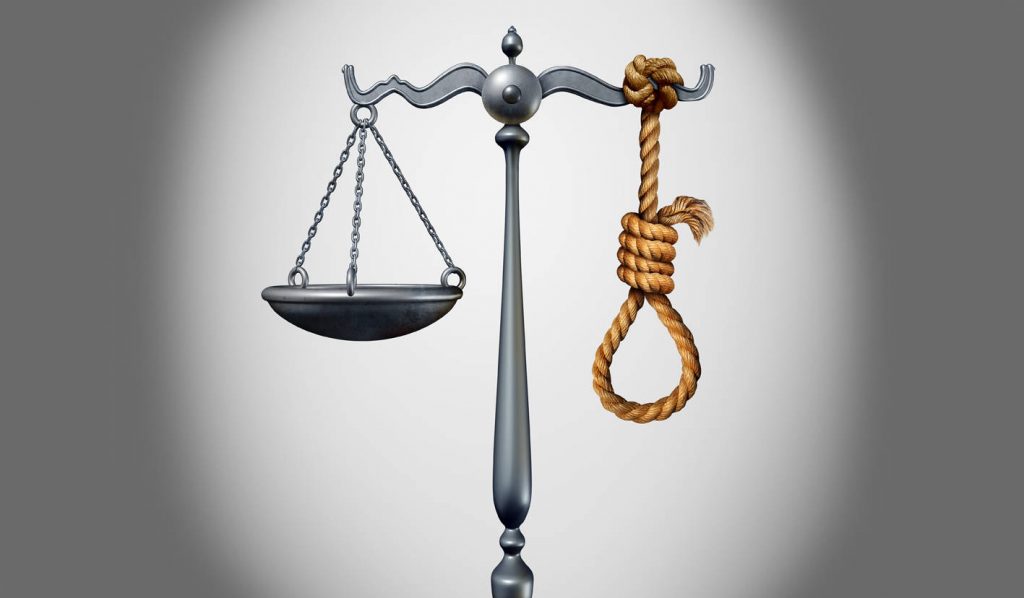Death penalty Bill proposal gains momentum
Civil society Organisations and religious leaders have intensified calls for Parliament to abolish the death penalty.
They argued in separate interviews that the death penalty which has been a sticky issue since 1994 has no place in a democratic State.

Human rights advocate Undule Mwakasungula argued in a written response that the death penalty contradicts the fundamental right to life as enshrined in the Constitution of Malawi and international human rights treaties.
He argued further that there is limited evidence to prove the effectiveness of death penalty as a deterrent to serious crimes.
Mwakasungula described death penalty as inhuman, degrading and that it undermines the principle of human dignity.
He said: “I advocate for the abolishment of the death penalty to uphold human rights, justice and the dignity of all individuals.
“My position supports this legislative effort through a Private Member’s Bill to eliminate this practice and encourages broader discussion and debate on the subject.”
Centre for Human Rights Education Advice and Assistance executive director Victor Mhango echoed similar sentiments.
He said tabling the Bill in Parliament is a step towards a more humane and just society.
Mhango, a staunch human rights advocate, argued that it is time for the country’s laws to reflect progress, compassion and the recognition of human dignity; hence, the need to abolish the death penalty.
He said: “I urge the lawmakers to consider the moral importance and support the abolition Bill for a fairer future.”
Weighing in on the matter, religious and traditional leaders also said it is high time legislators discussed the matter.
Episcopal Conference of Malawi president Archbishop George Desmond Tambala, who is also the head of the Catholic Church in Malawi, said they have always advocated for the death penalty abolishment.
He argued in a write-up made available to Nation on Sunday that the death penalty is not an effective deterrent to murder and other serious crimes.
He argued: “In some cases, the executed persons turn out to be innocent. In such cases, it is impossible to restore their justice.”
Tambala also argued that the death penalty is built on vengeance which is against the scriptures.
Based on the scriptures, he argued further society can exact revenge using other means but not killing the accused.
Blantyre Synod of the CCAP general secretary Reverend Anderson Juma also expressed the need to repeal the law.
His Livingstonia Synod counterpart Reverend William Tembo also said they believe in forgiveness and love regardless of the sin committed and as such, death penalty has no place in a civilised society.
Nation on Sunday, however, failed to get the position of Nkhoma Synod general secretary Reverend Vasco Kachipapa who could not be reached while Evangelical Association of Malawi general secretary Reverend Francis Mkandawire pledged to send his response through.
Paramount Chief Kawinga was also for abolition of the death penalty, describing it as a psychological torture to both the accused and their families.
He proposed that convicts should be condemned to life imprisonment but not death.
“My thoughts on this are that this law is not ideal. Legislators need to discuss death penalty and abolish it. For instance, no President has executed the death penalty since 1994. So, why are we still having it?” argued Kawinga.
In April 2022, a report from the Legal Affairs Committee delivered to Parliament recommended abolishment of the death penalty on the basis that it serves no purpose.
And in a 2021 controversial Malawi Supreme Court of Appeal judgment by retired Justice of Appeal Dunstan Mwaungulu on behalf of his colleagues in the case of Charles Khoviwa, the court ruled that the imposition of the death penalty was unconstitutional and contrary to the right to life guaranteed by the Constitution.
The judgment further ordered the immediate resentencing of Khoviwa and those in his position who had been subjected to the mandatory death penalty, but were denied resentencing hearings during the original resentencing phase in 2017.
But former Chief Justice Andrew Nyirenda, justices Frank Kapanda, Rizine Mzikamanda (now Chief Justice), Anaclet Chipeta and Lovemore Chikopa (now retired), later delivered what they called a perfected judgment, distancing themselves from Mwaungulu and clarified that the death penalty was still part of the country’s laws.
There were 26 convicts on death row before President Lazarus Chakwera in December 2022 commuted their sentences to life imprisonment.
Currently, in Africa, 26 countries have abolished the death penalty, 14 still implement it and 16 others partially abolished it with exceptional circumstances.





